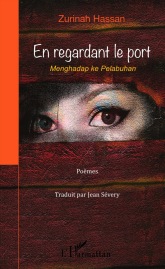 Auteur : Zurinah Hassan
Auteur : Zurinah Hassan
TRADUCTION : JEAN SÉVERY
L’HARMATTAN, 2015
ISBN : 9782343037042
Les questions posées par la poétesse sont celles qui sont proches de son âme. Les émotions sont celles d’une femme douce, mais pas naïve. Femme de réflexion et excellente observatrice, elle distille et exprime ce qu’elle voit, pense, ressent et n’exprimerait jamais une impression négative qui se révèlerait amère pour son public.






















